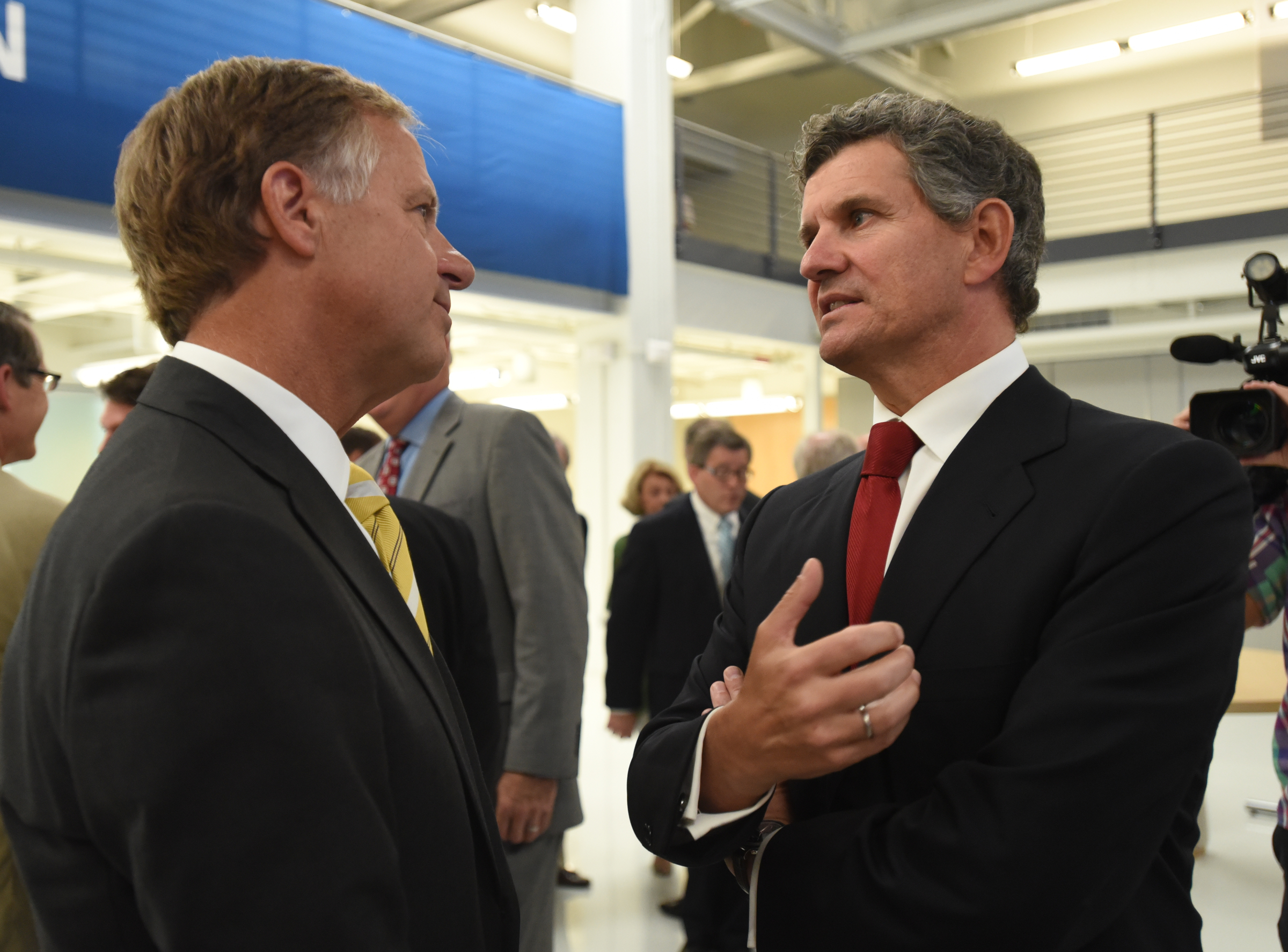More Info
BY THE NUMBERS* 864: Foreign-based establishments in Tennessee* $30.1 billion: Capital invested by companies* 116,000: Tennesseans employed by foreign companiesSource: Tennessee Department of Economic and Community Development
Wacker employee Aaron Franckhauser recalls the six months he spent in Germany studying the way the polysilicon maker does things went a long way toward giving him on-the-job confidence.
"I can't imagine how much money they spent on each of us," he says about the group of Wacker workers whom the company sent to Germany to learn about running the massive chemical plant being built in Charleston, Tennessee.
The Chattanooga area is seeing more and more foreign-owned companies opening up shop. Each enterprise has its own customs, which offer both opportunities and challenges to the American employees they hire.
Sebastian Patta, executive vice president for human resources at the Volkswagen plant in Chattanooga, says he has worked 31 years for the automaker and found that Americans have a different understanding of company loyalty.
"People move [jobs] when they have a bad dream or a nice dream or whatever," he says. "This is, to be honest, quite different behavior [than] in Germany. The Germans are more settled in, staying and really binding to a company until retirement."
Patta says that kind of behavior among American is one of those work-related issues he has to deal with while in the United States.
Charles Wood, the Chattanooga Area Chamber of Commerce's vice president of economic development, said the business group is recruiting about $1 billion in projects and half of that involves foreign companies. A new study by IBM on international plant locations already ranks Tennessee second behind only South Carolina for the number of jobs linked to foreign investment.
"About half of every project we're working on is looking at us from an international perspective," Wood says.
Already, Wood says, the Chamber's international business council includes people who speak a dozen different languages.
"When I'm talking to a company that's from Japan or Germany or India, that's a very powerful message to be able to say that," he says, adding that it's surprising to have so much diversity for a city the size of Chattanooga.
Wood says he had a visitor from New York recently who ate lunch at a downtown restaurant and, except for some Southern accents, felt as he hadn't left that city.
"He felt like the level of culture and attitude and buzz and all the things going on were very metropolitan," Wood says.
Recruiting VW's massive assembly plant and accompanying suppliers is driving a lot of the new foreign direct investment, but not all of it. For example, Chattanooga has recently recruited a pair of companies which are based in India. A $4 million Mahindra tractor assembly plant has gone up at Enterprise South industrial park.
Also, Sun Pharma, which owns Chattem Chemicals, plowed $6 million into its St. Elmo campus. It also has announced plans to put another $10 million to $15 million into the plant.
Earlier this year, Chattanooga recruited its first Chinese company. Yanfeng Automotive Interiors officially unveiled plans to invest $55 million into a Chattanooga facility to supply parts for VW's assembly plant and hire 325 people.
In Bradley County, Wacker is investing in a $2.4 billion production plant that should start making the product used in solar power panels later this year.
Erika Burk, who directs human resources for Wacker Polysilicon North America, says there's a cultural shift for the company's German management.
Burk, too, notes that U.S. workers don't tend to stay at one company for their careers.
"They tend to stay with a company until they get 50 cents more an hour at another company down the street," she says.
Additionally, the influx of foreign companies, many of which need skilled or highly skilled employees, is pressing the area's workforce, experts say.
Mark Campbell, owner of Manpower Inc. franchise in the region, says that VW, which is undertaking a $900 million expansion, and its suppliers are eventually bringing in about 4,000 jobs to the area.
"Chattanooga is getting ready to face a hurricane in the light-industrial side," he says, adding that it's already difficult to find skilled labor.
Dave Masters, a human resources consultant with Clear Options HR, says many foreign businesses are raising the bar for what they need in terms of employees.
"It's getting hard to find any kind, but especially hard to find people who have the skills and education these businesses need," he says. "They're a little different than some of our traditional manufacturing types of businesses."
Tony Cates, human resources manager at VW supplier Gestamp in Chattanooga, says his company has a couple of apprenticeship programs to try to find employees. The Spanish company is adding 500 jobs in the Scenic City, growing its existing plant and building a new one to produce external metal skin for the new mid-size sport utility vehicle VW will produce late next year.
"We don't know where we'll get all of those folks," he says.
Cates says that since VW only started producing cars in 2011, Chattanooga hasn't developed into "an automotive tier one place yet" where needed labor skills are readily available.
"Some of the skill positions we have are [new to] the area," he says. "But we're going to build our own. In five years, we'll be the best around."
Franckhauser, 36, a supervisor in the Wacker plant's infrastructure department, says the investment that Wacker has put into its employees shows the company wants well-trained people.
One of the highlights during his six-month stint in Germany was spending time with a lot of Wacker mentors.
"For me, it was a great experience," he says. "To me, I was sold on Wacker."

